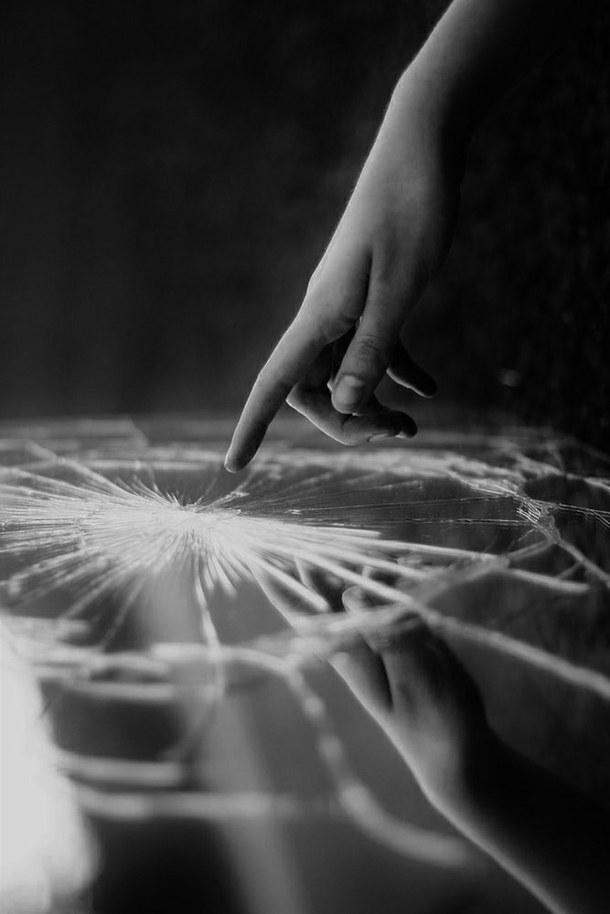490
Obedient from the cradle to the grave
Any well educated woman does not want to stand out. To escape, to adapt, to merge with others — that's the motto, which is often written on the flag “a well-mannered woman.” It seems that after becoming invisible, it will achieve its goals faster and more successful.
And being invisible and obedient girl (which, in fact, sought from her childhood), she was terribly surprised that none of it is not praise and does not endorse...
Women sacrifice themselves and believe that these sacrifices will be noticed and appreciation is sure to follow. And, hoping for it secretly, to speak about the second victims they dare not.

Expected remuneration is considered rude and frowned upon.
In fact, any woman must learn the simple things to seek reward, or at least to specify in advance its possibility.
In this case, the one who is the victim or just a service, shall have the choice to accept it or reject it. And everyone knows what he expects and what they have.
One of the biggest problems that women must solve is a paramount desire to please, to be desired.
This objective overshadows a huge number of possibilities.
The woman restricts herself to self-determination, independence, career, and power. Instead of looking for itself, it is removed from the self further and further.
When someone makes clear to the woman that she is wanted and like, it often doesn't even believe it, because doesn't expect respect. A similar story continues as long as the woman focuses on the opinions of others more than their own thoughts and desires.
Most of us remain enclosed in the usual scheme, as in cells.
We willingly accept the role of obedient girls than cheerful women.
Why is this happening? Why are we so often hesitant to do something, in our opinion the “bad” (and perfectly normal from the point of view of most men)?
The answer is — we are afraid. We owns fear of being punished for naughtiness, for any, even minor, violation of the rules. We think about whether the love around us, if “good girls” we will become “bad”...
The consequence of this fear, depression, rejection of the most simple pleasures and entertainment.
And besides, we seldom get what they really want.
The reasons for this behavior lie in the past. From infancy boys and girls brought up differently, and this is the same helplessness, which is firmly attached to women.
In the last fifteen years in psychology actively developed two main models that visually explain the appearance of female self-restraint and methods for its electricity. They show how women end up in dead-end situations and why they can't get out of them safely.
The concept of a familiar (or learned helplessness (BOP concept)
This is the Central concept for understanding women's life conflicts. Many everyday problems can be described in one word — “helplessness”. The punctured tyre of the car, has an abusive husband and the woman is included in this habitual, rehearsed many times the state, in advance, confident that nothing can be done about it. Martin Seligman, one of the founders of the concept of habitual helplessness, believes that even such serious problems as depression and phobias, can be attributed to the varietal reaction of helplessness. Many repetitions of the same situations give women the stereotype that she says to herself, “I can't help myself”. And it is here that originate and fears, and depression. Reaction of helplessness only exists because people think they can not cope. However, they are not guided by real circumstances, and their own beliefs.
Deciding once that it is impossible to affect the course of events, people actually cease to influence him.
Helplessness is a learned and habitual belief, as a rule, not associated with the real situation.
The concept of self-fulfilling prophecies (SFP-concept)
This concept States that some event occurs because there is a corresponding expectation. A more precise definition of SFP (self-fulfilling prophecy) is: “If I have certain expectations of the alleged events, I am preparing myself to them, and, therefore, increases the likelihood that events will unfold as I expect.”
Such processes often occur unconsciously. For example, a student afraid of examination. Because of the overwhelming fear he can't quietly and slowly to teach the subject. He is nervous, in his head instead of a coherent system of answers only some unordered knowledge. It gives a feeling familiar to many “empty heads” before the exam. The result, of course, the probability of “failure” increases, followed by increasing fear.
Take the reverse situation: a student preparing for the exam with a sense of “I believe I will be able to learn and have a good answer.” In this case, he focused, concentrated and calm. Inner picture of success greatly increases the probability of success in the exam.
The life of the system PB (habitual helplessness) and SFP are interrelated and complement each other. The woman, who believe in their technical incompetence, probably, in the childhood learned a similar view of themselves. She says, for example that you will never be able to replace the spark plugs in your car. However, if necessary, she reluctantly tries to do it. She picks up the wrong tool and should not explains the sequence of actions. Then she shut the finger one of the screws inaccessible, lost, what cable where to attach it, something breaks off and immediately confirms its expectation! She summarizes this failure and even more doubts about their ability ever to learn to cope with technology. Now it finally becomes clear that she needs help.

Thus, the subject is exhausted, and it itself invented and developed the inability to win.
How does the in this case, confident woman? She is also beginning to replace the plugs and also nip your finger. However, it does not make etodolac reaching conclusions and considers that the case is a little awkward. Examining the reasons, she realizes that she had slippery fingers and not the instrument. Next time she will correct their mistakes and will repeat the attempt, not doubting for a minute your abilities.
Helplessness extends to many everyday situations.Women captured by helplessness, rarely finish what they started, because of the constant self-doubt. You could say they remain far behind their own possibilities. At the slightest difficulty they give up and become discouraged.
This pattern of behavior is, of course, does not apply to all areas of life. For example, a dressmaker may be completely unsuccessful in the conflicts with her mother, but communicates with clients at work. The teacher may panic if she has an exam on the training, although effortlessly cope with difficult teenagers.
People are often competent and strong in one area and helpless to another. And, as strange as it may sound, the positive experience of success in one area does not help to achieve success in the other. Most people would think it was a coincidence that they manage, rather than acknowledge their own achievement. These beliefs arise in the earliest period of learning in childhood, and block the way to possible changes in views.
Someone thinks, unable to solve a math problem that everyone in his family is not capable to mathematics. This is an internal blockade that does not allow you to surely develop their existing abilities. The same who has no such internal restrictions, understands that the problem is complex, requires knowledge, but, with effort and reflection, it can be solved.
He is aware that difficulties only apply to certain circumstances or situations, but not to the individual.
Mistakes happen, but they do not necessarily happen again. In other circumstances, when people are more relaxed, it is better the day passed, he correctly prepared, took the best materials — all will go much better...
Thus, if you constantly look for errors in their behavior and believe that the conditions for them remain the same, there is a certain samarlakota. And the basis for it is, most likely, the usual helplessness.
Many women live with the idea that they are unable to succeed in any field. They no longer trust themselves, relying only on the destiny and to help others. Failed from the faith in themselves, in their own strength and vitality, having the skill and pattern of dependence on others, women leave yourself only one option — to adjust and customize itself according to the desires of others. However, they lose that part of ease and vitality, which allows them to be themselves and enjoy life. Professionally competent, but enslaved helpless women hope that their “open” a fairy-tale Prince, mentor, protector. He was waiting for many women who feel from time to time hidden princesses. Instead of acting, they hide their true abilities and were quite disappointed that the chief of them is not patronizing and does not emit among others.
“Helpless” didn't trust their capabilities and abilities. If they have something, they believe it is the result of random luck. Taking away the joy for their successes, they nevertheless necessarily blame yourself if things go awry.
All this is reflected in the development of a woman's personality. “Helpless” suffer from internal inertia, lethargy, constant fatigue, insomnia or purposeless activity. They insist that nothing can change that not able to achieve the goal.
They are not afraid to deal with life itself.
However, a few women say about themselves that they are helpless. They just consider themselves at the mercy of fate. And the word “helplessness” is only used in extreme situations and most often in relation to others, to those who are in need of comfort.
Very rare “helpless” women feel empowered to manage their lives, make their own decisions and support themselves. And this leads to low self-esteem. One who expects nothing from itself, becomes dependent on others. Therefore, most women devote all my energies to maintain a good opinion of himself, interest in his person.
So, instead of ahead, to develop and to really arrange their own lives, “helpless” women put hand in maintaining their own image of “good girl” and make dubious compromises with myself. published
Author: Ute Erhardt, from the book "Good girls go to heaven, and bad — where want, or why obedience does not bring happiness"
P. S. And remember, only by changing their consumption — together we change the world! ©
Source: vk.com/wall-99950428?offset=40&own=1&w=wall-99950428_171
And being invisible and obedient girl (which, in fact, sought from her childhood), she was terribly surprised that none of it is not praise and does not endorse...
Women sacrifice themselves and believe that these sacrifices will be noticed and appreciation is sure to follow. And, hoping for it secretly, to speak about the second victims they dare not.

Expected remuneration is considered rude and frowned upon.
In fact, any woman must learn the simple things to seek reward, or at least to specify in advance its possibility.
In this case, the one who is the victim or just a service, shall have the choice to accept it or reject it. And everyone knows what he expects and what they have.
One of the biggest problems that women must solve is a paramount desire to please, to be desired.
This objective overshadows a huge number of possibilities.
The woman restricts herself to self-determination, independence, career, and power. Instead of looking for itself, it is removed from the self further and further.
When someone makes clear to the woman that she is wanted and like, it often doesn't even believe it, because doesn't expect respect. A similar story continues as long as the woman focuses on the opinions of others more than their own thoughts and desires.
Most of us remain enclosed in the usual scheme, as in cells.
We willingly accept the role of obedient girls than cheerful women.
Why is this happening? Why are we so often hesitant to do something, in our opinion the “bad” (and perfectly normal from the point of view of most men)?
The answer is — we are afraid. We owns fear of being punished for naughtiness, for any, even minor, violation of the rules. We think about whether the love around us, if “good girls” we will become “bad”...
The consequence of this fear, depression, rejection of the most simple pleasures and entertainment.
And besides, we seldom get what they really want.
The reasons for this behavior lie in the past. From infancy boys and girls brought up differently, and this is the same helplessness, which is firmly attached to women.
In the last fifteen years in psychology actively developed two main models that visually explain the appearance of female self-restraint and methods for its electricity. They show how women end up in dead-end situations and why they can't get out of them safely.
The concept of a familiar (or learned helplessness (BOP concept)
This is the Central concept for understanding women's life conflicts. Many everyday problems can be described in one word — “helplessness”. The punctured tyre of the car, has an abusive husband and the woman is included in this habitual, rehearsed many times the state, in advance, confident that nothing can be done about it. Martin Seligman, one of the founders of the concept of habitual helplessness, believes that even such serious problems as depression and phobias, can be attributed to the varietal reaction of helplessness. Many repetitions of the same situations give women the stereotype that she says to herself, “I can't help myself”. And it is here that originate and fears, and depression. Reaction of helplessness only exists because people think they can not cope. However, they are not guided by real circumstances, and their own beliefs.
Deciding once that it is impossible to affect the course of events, people actually cease to influence him.
Helplessness is a learned and habitual belief, as a rule, not associated with the real situation.
The concept of self-fulfilling prophecies (SFP-concept)
This concept States that some event occurs because there is a corresponding expectation. A more precise definition of SFP (self-fulfilling prophecy) is: “If I have certain expectations of the alleged events, I am preparing myself to them, and, therefore, increases the likelihood that events will unfold as I expect.”
Such processes often occur unconsciously. For example, a student afraid of examination. Because of the overwhelming fear he can't quietly and slowly to teach the subject. He is nervous, in his head instead of a coherent system of answers only some unordered knowledge. It gives a feeling familiar to many “empty heads” before the exam. The result, of course, the probability of “failure” increases, followed by increasing fear.
Take the reverse situation: a student preparing for the exam with a sense of “I believe I will be able to learn and have a good answer.” In this case, he focused, concentrated and calm. Inner picture of success greatly increases the probability of success in the exam.
The life of the system PB (habitual helplessness) and SFP are interrelated and complement each other. The woman, who believe in their technical incompetence, probably, in the childhood learned a similar view of themselves. She says, for example that you will never be able to replace the spark plugs in your car. However, if necessary, she reluctantly tries to do it. She picks up the wrong tool and should not explains the sequence of actions. Then she shut the finger one of the screws inaccessible, lost, what cable where to attach it, something breaks off and immediately confirms its expectation! She summarizes this failure and even more doubts about their ability ever to learn to cope with technology. Now it finally becomes clear that she needs help.

Thus, the subject is exhausted, and it itself invented and developed the inability to win.
How does the in this case, confident woman? She is also beginning to replace the plugs and also nip your finger. However, it does not make etodolac reaching conclusions and considers that the case is a little awkward. Examining the reasons, she realizes that she had slippery fingers and not the instrument. Next time she will correct their mistakes and will repeat the attempt, not doubting for a minute your abilities.
Helplessness extends to many everyday situations.Women captured by helplessness, rarely finish what they started, because of the constant self-doubt. You could say they remain far behind their own possibilities. At the slightest difficulty they give up and become discouraged.
This pattern of behavior is, of course, does not apply to all areas of life. For example, a dressmaker may be completely unsuccessful in the conflicts with her mother, but communicates with clients at work. The teacher may panic if she has an exam on the training, although effortlessly cope with difficult teenagers.
People are often competent and strong in one area and helpless to another. And, as strange as it may sound, the positive experience of success in one area does not help to achieve success in the other. Most people would think it was a coincidence that they manage, rather than acknowledge their own achievement. These beliefs arise in the earliest period of learning in childhood, and block the way to possible changes in views.
Someone thinks, unable to solve a math problem that everyone in his family is not capable to mathematics. This is an internal blockade that does not allow you to surely develop their existing abilities. The same who has no such internal restrictions, understands that the problem is complex, requires knowledge, but, with effort and reflection, it can be solved.
He is aware that difficulties only apply to certain circumstances or situations, but not to the individual.
Mistakes happen, but they do not necessarily happen again. In other circumstances, when people are more relaxed, it is better the day passed, he correctly prepared, took the best materials — all will go much better...
Thus, if you constantly look for errors in their behavior and believe that the conditions for them remain the same, there is a certain samarlakota. And the basis for it is, most likely, the usual helplessness.
Many women live with the idea that they are unable to succeed in any field. They no longer trust themselves, relying only on the destiny and to help others. Failed from the faith in themselves, in their own strength and vitality, having the skill and pattern of dependence on others, women leave yourself only one option — to adjust and customize itself according to the desires of others. However, they lose that part of ease and vitality, which allows them to be themselves and enjoy life. Professionally competent, but enslaved helpless women hope that their “open” a fairy-tale Prince, mentor, protector. He was waiting for many women who feel from time to time hidden princesses. Instead of acting, they hide their true abilities and were quite disappointed that the chief of them is not patronizing and does not emit among others.
“Helpless” didn't trust their capabilities and abilities. If they have something, they believe it is the result of random luck. Taking away the joy for their successes, they nevertheless necessarily blame yourself if things go awry.
All this is reflected in the development of a woman's personality. “Helpless” suffer from internal inertia, lethargy, constant fatigue, insomnia or purposeless activity. They insist that nothing can change that not able to achieve the goal.
They are not afraid to deal with life itself.
However, a few women say about themselves that they are helpless. They just consider themselves at the mercy of fate. And the word “helplessness” is only used in extreme situations and most often in relation to others, to those who are in need of comfort.
Very rare “helpless” women feel empowered to manage their lives, make their own decisions and support themselves. And this leads to low self-esteem. One who expects nothing from itself, becomes dependent on others. Therefore, most women devote all my energies to maintain a good opinion of himself, interest in his person.
So, instead of ahead, to develop and to really arrange their own lives, “helpless” women put hand in maintaining their own image of “good girl” and make dubious compromises with myself. published
Author: Ute Erhardt, from the book "Good girls go to heaven, and bad — where want, or why obedience does not bring happiness"
P. S. And remember, only by changing their consumption — together we change the world! ©
Source: vk.com/wall-99950428?offset=40&own=1&w=wall-99950428_171






















